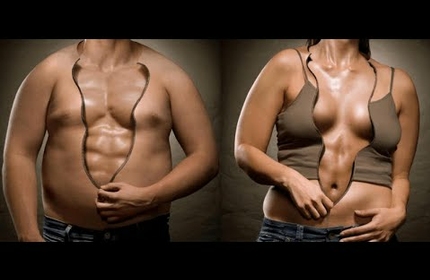
Low-Carb Diet - Mental Problems
1. Dieting itself is a non-trivial challenge for the unprepared person; the low-carb diet is doubly so. And, both for beginners and for those who turn to it not for the first time. It is known that the brain needs carbohydrates for normal functioning. Removing them from the diet (or a radical reduction, which, in fact, is tantamount to elimination) will lead to the fact that the brain does not get the "fuel" for normal work. And this is fraught with mental problems. These problems are familiar to many (if not all) of those who "sat" on "no carbohydrate". Distractedness, irritability, forgetfulness... all of these things come when you limit your carbohydrates, and go away when you put them back into your diet. But Australian researchers have shown that it's not that simple. It turns out that depression, nervous tension, irritability can remain in fans of "no-carb" for quite a long time after the end of the diet. They are simply used to attributing them in this case not to the low carbohydrate content of the diet, but to other factors. But it turns out that it is "no carbohydrate" that is to blame. So think twice before resorting to radical methods of getting rid of excess fat.
Diet is good, but exercise is better.
2. Surely you've heard the phrase more than once: "lose weight without dieting or exercising." Alas, this phrase, in fact, is nothing more than a common advertising "lure" - lose weight "for nothing" you just do not get. But what is "more important" in burning fat: diet or exercise? Buck Willis of the Austin Medical Center (Texas, USA) asked himself this question. He found that people who exercised at a moderate intensity of 30 minutes a day, four times a week, lost about 5 kg of fat in 8 weeks. And that's without restricting caloric intake (of course, the food was healthy). Such results can be explained by the fact that during the training carried out in this regime the body's synthesis of growth hormone increases considerably, and this hormone is known to have fat-burning properties. On the other hand, it should be noted that training and dieting together will give faster results.
Working out twice a day increases the rate of fat burning
3.Hy, everything is clear with exercise. But what about their frequency and intensity? How will they affect the fat burning process?
The answer to the second question was obtained a long time ago: when training with an intensity not exceeding 65% of the maximum possible (in bodybuilding it is called moderate and below moderate intensity training), fat is used as the main source of energy. If the training intensity is increased, carbohydrates carry the main energy load. As for the answer to the first question, Swiss researchers recently found that the rate at which fat is burned during a workout session directly depends on what physical activity the subject was engaged in (and if at all) before that session. That is, if you do two workout sessions a day - at medium intensity! - then the rate of subcutaneous fat burning in the second one will be significantly higher.
Less sleep means more fat.
4.Few people doubt the usefulness of sleep. And if there are those, then as fatigue, irritability, absent-mindedness associated with a lack of sleep grows, their army will thin considerably. The body needs sleep in order to recover normally after a hard day. And for what else? It turns out, so that the body can control normal weight. Since the 1950s, the amount of sleep Americans get has decreased by 15% and now averages about 6 hours. At the same time, the propensity of U.S. citizens to become obese has increased. Perhaps one explanation for this fact is that people who do not get enough sleep, whether they are men or women, develop insulin resistance and, as a result, have a significantly increased risk of diabetes (type 2). A recent study showed that one sleepless night is enough to disrupt insulin-mediated sugar processing.
The conclusion from all this is very simple: you want to be slim and trim, normalize your sleep, do not limit yourself in it. Remember: those who work out hard need at least 8 hours of sleep a night, if not all 9.
Women need to exercise for an hour a day to avoid gaining weight.
According to a study recently published in the Journal of the American Medical Association, women who do not want to gain weight as they get older, but do not want to restrict their eating habits, need to exercise at least one hour a day. According to study author Dr. Lee, "If you don't want to exercise for an hour every day, then you're going to have to cut back on calories a lot."
It remains to add that 34,000 women took part in the study, and only those of them who were not overweight at the beginning of the study and spent at least an hour a day exercising of moderate intensity managed to maintain a normal weight. Interestingly, common U.S. programs to prevent disease, including cardiovascular disease, require only 150 minutes of exercise per week, three times less than recommended in this study.